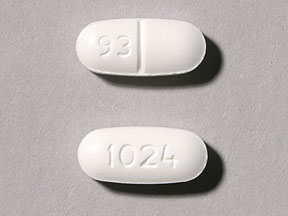
Nefazodone Coupons & Savings Card – Discount Prices from $74.65
Nefazodone is prescribed for the treatment of depression. It is generally considered only after other medications have been tried, due to the potential risk of serious liver damage. Nefazodone functions by increasing the levels of serotonin and norepinephrine in the brain, which are natural substances that help improve mood. This medication is not associated with significant weight changes and typically does not cause withdrawal symptoms. It is available only as a generic, as the brand name version, Serzone, is no longer on the market. Common side effects can include headache, dry mouth, nausea, and drowsiness. Always consult with your healthcare provider before starting or stopping any medication.
Our coupons are free to use. Before paying, show the pharmacist your Nefazodone savings card to get your free discount. Use our filters below to edit the prescription box to match your needs. The Nefazodone prices will update based on your prescription needs. Above our Nefazodone coupons, you can change your location to see pharmacy prices and costs in other areas. We're here to help you buy Nefazodone at the lowest price with our prescription discount card.
My prescription
Edit
100MG, Nefazodone (60 Tablets)
Select pharmacy

CVS
$83.57
COUPON PRICE
Albertsons
$74.65
COUPON PRICE
Walgreens
$74.65
COUPON PRICE
Walmart
$81.72
COUPON PRICENefazodone savings card
Show this card to your pharmacist
Albertsons
$74.65
BIN
ID
PCN
GRP
011867
LHDEFDB386
HT
LABH001
Powered by
Nefazodone is prescribed for the treatment of depression. It is generally considered only after other medications have been tried, due to the potential risk of serious liver damage. Nefazodone functions by increasing the levels of serotonin and norepinephrine in the brain, which are natural substances that help improve mood. This medication is not associated with significant weight changes and typically does not cause withdrawal symptoms. It is available only as a generic, as the brand name version, Serzone, is no longer on the market. Common side effects can include headache, dry mouth, nausea, and drowsiness. Always consult with your healthcare provider before starting or stopping any medication.
Our coupons are free to use. Before paying, show the pharmacist your Nefazodone savings card to get your free discount. Use our filters below to edit the prescription box to match your needs. The Nefazodone prices will update based on your prescription needs. Above our Nefazodone coupons, you can change your location to see pharmacy prices and costs in other areas. We're here to help you buy Nefazodone at the lowest price with our prescription discount card.
Related atypical antidepressants prescriptions
coupons from$2493.86Save 68%
coupons from$1207.75Save 42%
coupons from$9.99Save 70%
coupons from$532.00Save 70%
More prescriptions for depression
coupons from$11.18Save 88%
coupons from$12.63Save 76%
coupons from$60.43Save 91%
coupons from$70.76Save 80%
coupons from$11.18Save 88%
coupons from$12.38Save 87%
coupons from$16.58Save 58%
coupons from$21.50Save 82%
Related atypical antidepressants prescriptions
Aplenzin Save 68%coupons from $2493.86
Auvelity Save 42%coupons from $1207.75
Trazodone Save 70%coupons from $9.99
Trintellix Save 70%coupons from $532.00
More prescriptions for depression
Remeron Save 88%coupons from $11.18
Bupropion Hcl Save 76%coupons from $12.63
Opipza Save 91%coupons from $60.43
Trimipramine Save 80%coupons from $70.76
Mirtazapine Save 88%coupons from $11.18
Amoxapine Save 87%coupons from $12.38
Norpramin Save 58%coupons from $16.58
Paroxetine Hcl Save 82%coupons from $21.50
Nefazodone dosage forms
Use our Nefazodone 50MG coupon with prices from $83.57 for 60 Tablets. You can also use our Nefazodone 50MG coupon with prices from $127.08 for 100 Tablets. We have a Nefazodone 50MG coupon with prices from $148.84 for 120 Tablets. You can use our Nefazodone 50MG coupon with prices from $214.10 for 180 Tablets.
Dosage Quantity Price from Per unit 50MG 60 Tablets $83.57 $1.39 50MG 100 Tablets $127.08 $1.27 50MG 120 Tablets $148.84 $1.24 50MG 180 Tablets $214.10 $1.19 100MG 60 Tablets $81.29 $1.35 100MG 10 Tablets $19.80 $1.98 100MG 20 Tablets $32.10 $1.60 100MG 30 Tablets $44.39 $1.48 100MG 90 Tablets $116.20 $1.29 100MG 120 Tablets $148.84 $1.24
| Dosage | Quantity | Price from | Per unit |
|---|---|---|---|
| 50MG | 60 Tablets | $83.57 | $1.39 |
| 50MG | 100 Tablets | $127.08 | $1.27 |
| 50MG | 120 Tablets | $148.84 | $1.24 |
| 50MG | 180 Tablets | $214.10 | $1.19 |
| 100MG | 60 Tablets | $81.29 | $1.35 |
| 100MG | 10 Tablets | $19.80 | $1.98 |
| 100MG | 20 Tablets | $32.10 | $1.60 |
| 100MG | 30 Tablets | $44.39 | $1.48 |
| 100MG | 90 Tablets | $116.20 | $1.29 |
| 100MG | 120 Tablets | $148.84 | $1.24 |
| 100MG | 180 Tablets | $222.10 | $1.23 |
| 150MG | 60 Tablets | $40.55 | $0.68 |
| 150MG | 90 Tablets | $64.82 | $0.72 |
| 150MG | 120 Tablets | $89.10 | $0.74 |
| 150MG | 180 Tablets | $137.64 | $0.77 |
| 200MG | 60 Tablets | $58.06 | $0.97 |
| 200MG | 120 Tablets | $108.62 | $0.91 |
| 200MG | 180 Tablets | $159.18 | $0.88 |
| 250MG | 60 Tablets | $34.82 | $0.58 |
| 250MG | 120 Tablets | $88.63 | $0.74 |
| 250MG | 180 Tablets | $142.44 | $0.79 |
